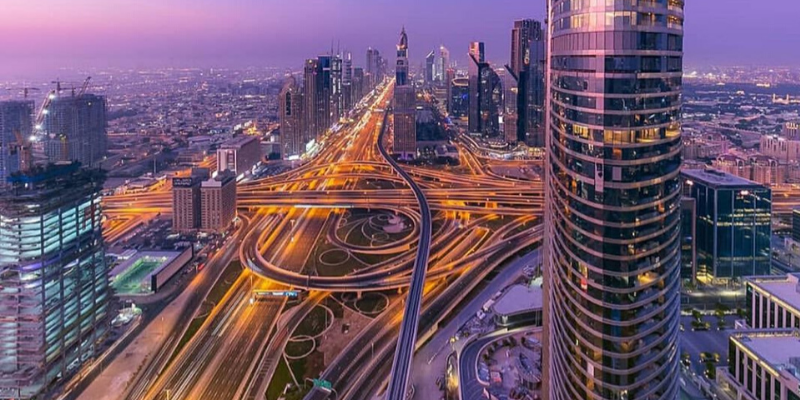As part of further measures to combat the spreading of coronavirus, the national sterilisation programme in the UAE is now set to run for 24 hours a day in Dubai for the next two weeks, per orders from the Supreme Committee of Crisis and Disaster Management.
The programme was initially implemented for two weeks on March 26 and ran from 8pm to 6am, however now this has been extended to 24 hours requiring people to stay home at all times. Those who to do not comply with the rules could be faced with legal implications.
Citizens and residents should only leave the house for “essential purposes”, a statement from the Dubai Media Office said.
“Individuals will not be allowed to leave the house, except for essential purposes or if they are working in vital sectors exempted from the restrictions,” the statement said. “These measures have been put in place to ensure people undertake trips outside the home in a planned and organised way.”
Members of the public can leave to go and buy food, but “only one family member is permitted to leave the house”. Going to pick up medicine, attending medical appointments and undergoing COVID-19 tests are also all considered “essential”.
Members of the public are allowed to go out for:
– Essential needs, such as buying food. Only one family member is permitted to leave the house.
– Buying medicines/getting medical assistance from healthcare service providers like hospitals, clinics and pharmacies
– COVID-19 tests pic.twitter.com/56nyAZgczU— Dubai Media Office (@DXBMediaOffice) April 4, 2020
If you are leaving the house masks and gloves should be worn, and members of the public must ensure a safe distance is kept from others.
As for public transport, both the metro and the Dubai tram will be closed for the entire duration of the 24-hour sterilisation programme.
Because of this the Dubai Roads and Transport Authority (RTA) announced public bus services will be free, and taxis in Dubai will be offering 50 per cent discounted rates.
This is to ensure vital workers and support workers can still commute to work.
Vital sectors who are excluded from the 24-hour restrictions are as follows: from restrictions (24 hours a day):
- Healthcare services (hospitals, clinics and pharmacies)
- Food supply outlets (Union Cooperative outlets, supermarkets, groceries)
- Delivery services (food and medicine)
- Restaurants (operations limited to home deliveries only)
- Manufacturers of medicines and providers of healthcare and medical supplies
- Industrial sector (only vital industries)
- Industrial supply chain for services and basic commodities
- Water and electricity sector, petrol and gas stations and district cooling services
- Telecommunications sector
- Media sector
- Airports, airlines, ports, shipping
- Customs duty and border crossings
- Public and private security services
- Municipality services and public and private service providers involved in garbage collection, sewage management and general cleaning and sanitation
- Private and government sector organisations involved in combating the coronavirus (COVID-19).
- Public transport (buses and taxis only; metro and tram services will be suspended)
- Construction sector, subject to obtaining a permit from Dubai Municipality and the Permanent Committee for Labour Affairs.
Meanwhile support sectors have been granted permission to work between the hours of 8am and 2pm. These services include:
- Banking and financial services (banks and exchange centres)
- Social welfare services
- Laundry services (for permitted outlets)
- Maintenance services
As of April 5, there has been 1,505 confirmed cases of coronavirus in the UAE – 125 of those have recovered, and there has been 10 fatalities.
– For more about Dubai’s lifestyle, news and fashion scene follow Emirates Woman on Facebook and Instagram.
Images: Instagram.












